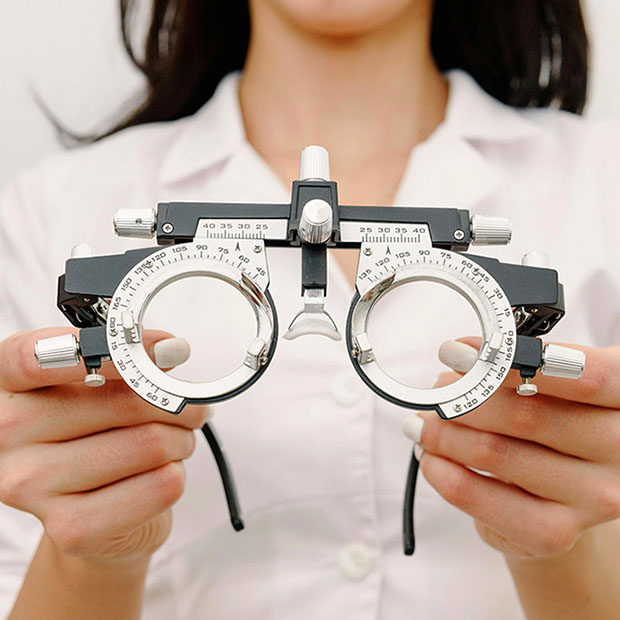A Typical Eye Exam

About one in five adults in the United States has an undiagnosed eye condition.
This underscores the critical importance of regular eye exams for maintaining optimal vision health. For those who have never undergone an eye exam, it’s natural to feel uncertain about the process. However, we’re here to demystify the experience and emphasize why it’s crucial for lifelong vision well-being.
Your Comprehensive Eye Exam: What to Expect
An eye exam is a thorough evaluation of both your vision and eye health. It encompasses a series of tests designed to assess various aspects, including visual acuity, eye function, and overall eye health. These tests typically include:
- Visual acuity tests: These evaluations gauge your ability to see clearly at different distances by reading letters or symbols from an eye chart, with or without corrective lenses.
- Refraction tests: Conducted using a phoropter, these tests determine your prescription for glasses or contact lenses to achieve optimal vision clarity.
- Binocular vision tests: These assessments evaluate how effectively your eyes work together, examining eye alignment and coordination.
- Eye health evaluations: This includes a dilated eye exam to examine the internal structures of your eye, along with specialized tests to assess the health of your cornea, retina, and optic nerve.
What Information to Bring
During your eye exam, your optometrist may inquire about your medical history and any current medications you’re taking. This information is vital for identifying potential underlying conditions that could impact your vision, such as diabetes or high blood pressure.
Early Detection of Eye Diseases
Regular eye exams are instrumental in detecting eye conditions like glaucoma and age-related macular degeneration, which often manifest without early warning signs. Detecting these conditions early on enables more effective treatment and management, potentially averting vision loss. Furthermore, subtle changes in vision can occur gradually, making them challenging to notice until they reach an advanced stage. Regular eye exams help catch these changes early, facilitating prompt intervention and better outcomes.
Don’t Delay; Schedule Your Appointment Today
An eye exam is not only a routine check-up but a vital aspect of maintaining optimal vision health. It’s a proactive step towards identifying any underlying issues and ensuring timely intervention. If you’re overdue for an eye exam, don’t hesitate to schedule an appointment with your optometrist. Your vision is too precious to risk, and early detection is key to preserving it. Take charge of your eye health and book your next eye exam today.